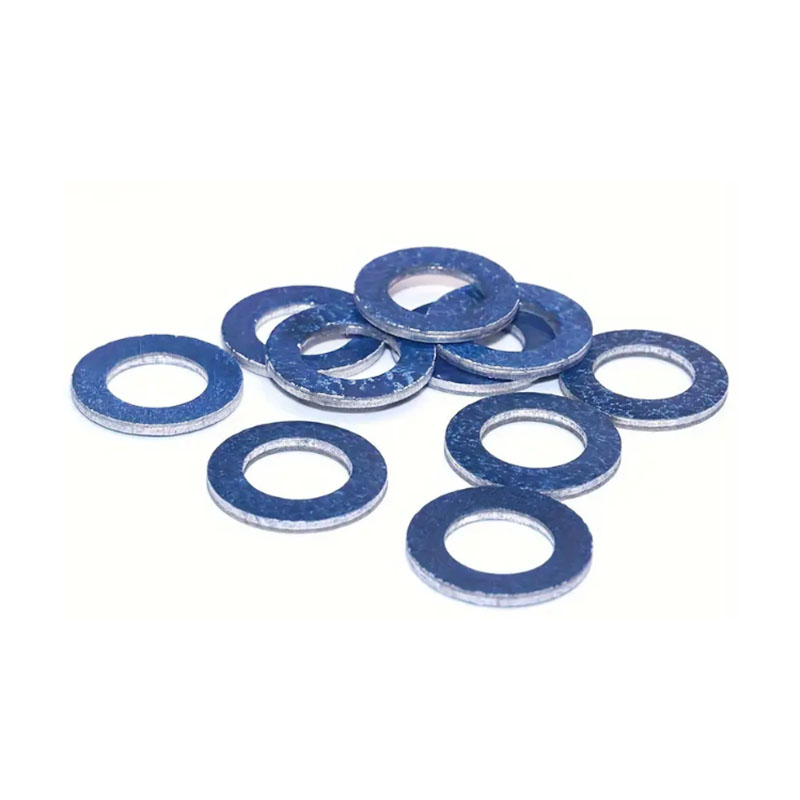Creative Ways to Reuse Old Crush Washers in Various Applications
The Benefits of Reusing Crush Washers A Sustainable Approach
In the world of maintenance, repair, and engineering, crush washers are often overlooked yet critical components. Designed to create a watertight and airtight seal between parts, these simple disc-shaped elements play a vital role in preventing leaks and ensuring efficiency in various applications. Traditionally, crush washers are regarded as single-use items that must be replaced after each use. However, with growing environmental concerns and a push for sustainability, the idea of reusing crush washers is gaining traction. This article explores the benefits of reusing crush washers, as well as practical tips for making this practice a reality.
Understanding Crush Washers
Crush washers, typically made from materials such as copper, aluminum, or rubber, are designed to deform slightly when tightened. This deformation creates a seal that prevents fluid or gas from escaping. They are commonly used in automotive, plumbing, and industrial applications. Given their importance, it’s crucial to assess their lifecycle and find ways to extend their usability rather than disposing of them after a single use.
Benefits of Reusing Crush Washers
1. Environmental Impact One of the most significant benefits of reusing crush washers is the reduction of waste. In a world that is increasingly conscious of environmental degradation, reusing components can lead to lower material consumption and waste generation. By keeping crush washers in circulation longer, we are contributing to a more sustainable future.
2. Cost Savings For both industries and individual consumers, the financial savings associated with reusing crush washers can be substantial. The cost of new washers may seem negligible, but these costs can accumulate over time, especially for businesses that engage in heavy machinery maintenance. Reusing washers can lead to significant budget reductions without compromising the quality of work.
3. Resource Efficiency Manufacturing new washers requires energy and raw materials. By reusing existing components, we lessen the demand for these resources. This approach not only conserves materials but also reduces the overall carbon footprint associated with production and transportation.
4. Increased Knowledge and Skills Introducing a practice of reusing crush washers encourages workers to develop a better understanding of the components they work with. This added knowledge can lead to improved skills in maintenance and repair, as workers learn to evaluate the condition of washers and determine their viability for reuse.
reusing crush washer

Practical Tips for Reusing Crush Washers
To successfully incorporate the reuse of crush washers into your maintenance practices, consider the following tips
- Inspect Regularly Before considering a crush washer for reuse, inspect it thoroughly for signs of wear, cracking, or deformation. If it retains its structural integrity and elasticity, it may be suitable for another use.
- Clean Properly Ensure that the washers are cleaned to remove any residue from previous applications. This step helps maintain the integrity of the seal for future uses.
- Proper Storage Store used washers in a clean, dry place to prevent contamination and deterioration.
- Documentation Create a system for tracking the usage and condition of crush washers. This practice can help manage their lifecycle efficiently and remind users of which washers are suitable for reuse.
5. Educate Your Team Encourage your team to embrace the practice of reusing crush washers. Share the benefits and provide training on how to inspect and handle them properly.
Conclusion
Reusing crush washers is a practical, sustainable approach that can make a significant impact in various fields. By adopting this strategy, we not only benefit our wallets but also play a part in protecting the environment. As society increasingly shifts towards sustainable practices, reusing crush washers is a step that reflects responsibility and foresight—key traits for a better, more resource-conscious world.
-
The Ultimate Guide to Car Repair Kits: Tools and Essentials Every Driver Should Own
News Aug.01,2025
-
The Complete Guide to Oil Pan Gaskets: Sealing Engine Leaks the Right Way
News Aug.01,2025
-
Preventing Oil Leaks: A Complete Guide to Oil Pan Gaskets and Drain Seals
News Aug.01,2025
-
Everything You Need to Know About Oil Pan Gaskets and Drain Plug Seals
News Aug.01,2025
-
Essential for Car Owners: How to Use a Car Repair Kit to Deal with Minor Breakdown
News Aug.01,2025
-
Comprehensive Guide to Engine Oil Sump Gaskets and Related Seals
News Aug.01,2025
-
The Ultimate Guide to Boat Propeller Bearings and Trailer Wheel Bearings
News Jul.31,2025
Products categories















